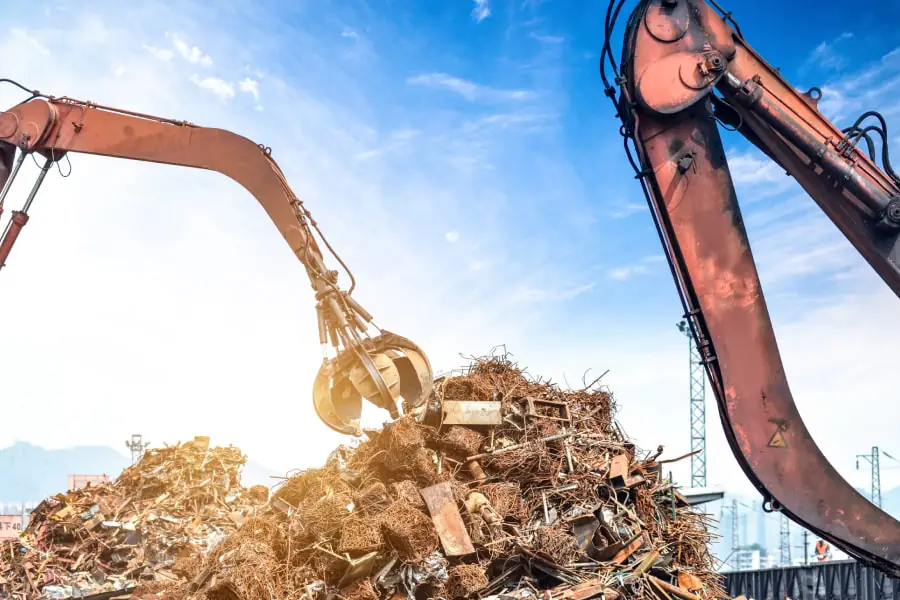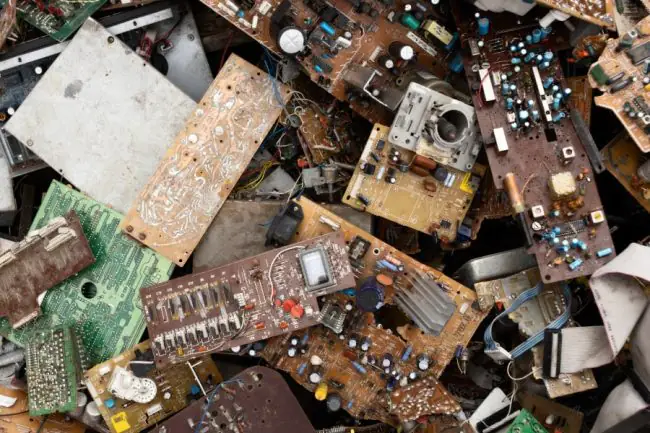Electronic waste, or e-waste, is accumulating at an alarming rate. Millions of devices, filled with valuable metals, end up in landfills, and Spain is no exception.
Recycling metal from e-waste has become essential, not just for reducing landfill waste but for protecting our environment.
Researchers are now pioneering methods that make it more sustainable and efficient, which could redefine how we think about old electronics. Let’s explore these exciting innovations and see how they’re transforming e-waste recycling.
Overcoming Traditional Limitations in Recycling Metal from E-Waste
Traditional recycling from e-waste comes with significant drawbacks: high costs, energy demands, and toxic byproducts.
Conventional methods often require heating metals to extreme temperatures, releasing harmful chemicals and pollutants.
Researchers, however, are now overcoming these limitations. They’re developing low-energy processes that make recycling metal more environmentally friendly.
Building Upon Existing Work in Recycling Metal from E-Waste
The groundwork for more sustainable recycling of metal from e-waste was laid in recent years, with researchers experimenting with new methods like bioleaching.
Bioleaching uses bacteria to separate metals from other materials, reducing toxic waste. By building on this approach, scientists have refined processes, making them quicker, safer, and more efficient.
Impressive Results and Future Implications
Thanks to these advancements, recycling metal from e-waste is becoming not only realistic but also more scalable. New methods can now recover metals like gold and copper with fewer resources.
As research progresses, this approach to recycling metal from e-waste could become standard worldwide, contributing to a circular economy that benefits both the environment and the economy.
A Greener Path for Recycling Metal from E-Waste
High-Efficiency Extraction and Quick Results
One of the highlights of this new method is its efficiency. By optimizing recycling metal from e-waste, researchers have achieved quicker recovery times without compromising quality.
Faster processing means that recycling metal can be done at a larger scale, making it a practical option for more facilities.
No External Power Required
Imagine a process for recycling metal from e-waste that doesn’t require external energy sources. That’s exactly what some researchers are aiming for with chemical-based extraction methods.
This approach could greatly reduce the cost and environmental footprint associated with recycling metal, allowing more facilities to implement it.
Computer Waste Recycling Services
While these new methods promise a greener future, services that focus on recycling metal from e-waste are already available.
In Spain, many companies now offer solutions for safely recycling e-waste, helping consumers get rid of electronics in an environmentally responsible way. Services specializing in recycling metal are playing a key role in reducing environmental harm.
Eco-Friendly E-Waste Disposal Technologies
Eco-friendly technologies are also on the rise, making recycling metal from e-waste safer and more effective.
Techniques like acid-free metal dissolution and bioleaching allow for the extraction of metals without harmful waste products. These innovations make recycling metal a cleaner process that benefits both the environment and human health.
Community-Based Initiatives
In Spain, community-based recycling programs are gaining traction, providing drop-off locations for e-waste.
These initiatives make it easier for people to contribute to recycling metal, raising public awareness about the value of reusing and recycling electronics.
Colorful Collection Bins and Other Creative Ideas
Some cities are getting creative with recycling metal from e-waste. Color-coded collection bins help people separate their electronics, making it easier to recycle and recover valuable metals. This kind of initiative not only simplifies recycling metal but also helps educate the public.
Egypt’s E-Waste App for Recycling Metal from E-Waste
Around the world, countries are tackling e-waste differently. Egypt has launched a mobile app that connects citizens with recycling facilities, promoting responsible disposal of electronics and recycling metal from e-waste.
Imagine a similar app for Spain that helps users locate nearby drop-off centers or track their recycling contributions.
Precious Metals from the Royal Mint
The Royal Mint in the UK has started an innovative program that extracts metals from electronic waste, providing a valuable source of recycled precious metals.
This cutting-edge example of recycling metal from e-waste is proof of how impactful advanced recycling methods can be.
Why It Matters
Recycling metal from e-waste is about more than clearing out old electronics. It’s about preserving our planet and making the most of limited resources.
Environmental Protection
Recycling metal helps prevent toxic materials from entering our soil and water systems, protecting biodiversity and public health.
Resource Conservation
Recycling metal from e-waste reduces the need for mining, a practice that can ruin ecosystems and pollute natural resources. By reusing metals, we conserve valuable resources for future generations.
Economic Benefits
Recycling metal supports job creation and economic growth. By reprocessing metals locally, we reduce reliance on imported raw materials, contributing to a more self-sufficient economy.
Reducing Landfill Waste
E-waste is among the fastest-growing waste types. Recycling metal from e-waste helps reduce the amount that ends up in landfills, allowing for better management of other waste types.
Supporting a Circular Economy
A circular economy means keeping materials in circulation for as long as possible, and recycling metal is a core part of this vision.
By recovering metals, we can reduce the demand for new resources, helping to preserve the environment.
The Need for Sustainable E-Waste Management
As e-waste production continues to grow, sustainable management becomes increasingly essential.
Legal and Regulatory Landscape
In Spain and throughout the EU, there are strict regulations that govern recycling metal from e-waste.
These rules ensure that companies meet standards for sustainable practices, protecting both people and the planet.
Corporate Responsibility
Businesses play a big role in sustainable e-waste management. By adopting green practices, like using renewed components and responsibly sourcing materials, companies can support recycling metal from e-waste and minimize their environmental impact.
Challenges and Future Considerations
Though promising, recycling metal from e-waste faces challenges that must be addressed to maximize its effectiveness.
Product Complexity
Electronics are becoming increasingly complex, which can complicate recycling metal from e-waste.
Disassembling devices to extract metals requires advanced technology and skilled workers, making it a labor-intensive process.
Lack of Infrastructure
Many areas lack adequate facilities for recycling metal, particularly in rural regions. Expanding access to recycling centers could make a substantial difference in e-waste management.
Public Awareness
Many people aren’t aware of the impact of improper e-waste disposal. Education campaigns highlighting the benefits of recycling metal from e-waste can help shift public perceptions, encouraging more responsible habits.
Conclusion
New techniques for recycling metal represent a major step forward for environmental sustainability.
These methods offer a greener, more efficient way to reclaim valuable materials, reducing dependence on mining and conserving natural resources.
Through community involvement, corporate responsibility, and greater public awareness, we can all contribute to a future where recycling metal from e-waste is the norm, not the exception.
FAQs
How to increase e-waste recycling?
Increasing e-waste recycling involves improving access to recycling centers, promoting community initiatives, and educating the public about recycling metal from e-waste.
How can we be more sustainable by recycling?
Recycling conserves resources, reduces pollution, and supports the circular economy, with recycling metal from e-waste being a key element in these efforts.
Which is the most sustainable method for e-waste management?
Advanced techniques like bioleaching and acid-free metal recovery are among the most sustainable ways of recycling metal from e-waste.
Which method is used to extract metals from e-waste?
Several methods are used, with hydrometallurgy and bioleaching emerging as sustainable options for recycling metal from e-waste.






